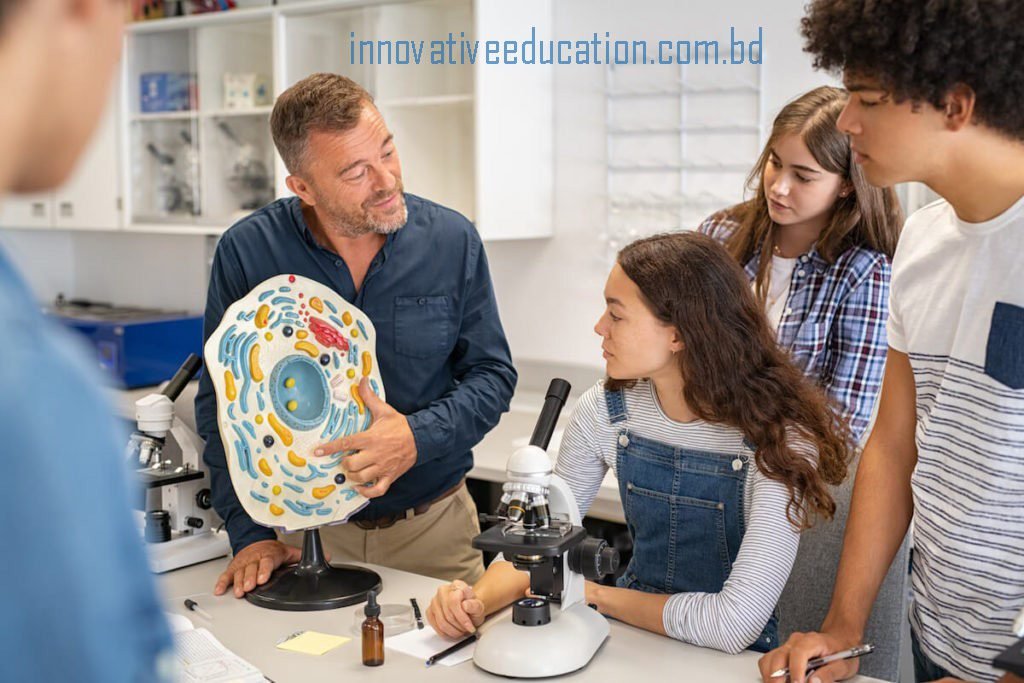Rethinking Key Concepts in Education: Innovation, Creation, Teaching, and Learning

Rethinking Key Concepts in Education: Innovation, Creation, Teaching, and Learning
Education is a dynamic and ever-evolving field, shaped by the way we define and understand key concepts. In this post, I invite you to take a step back and reflect on four fundamental terms that we frequently encounter in our daily discussions: Innovation, Creation, Teaching, and Learning.
These concepts are often used interchangeably or taken for granted, but as we grow as educators, learners, and thinkers, it’s important to revisit and refine our understanding. By doing so, we can develop a more intentional and insightful approach to education, ensuring that our definitions align with our evolving perspectives and experiences.
In this post, I will share my personal definitions of these four key terms, offering a lens through which to examine their significance in education. I also encourage you to share your thoughts—how do you define these terms in your own practice and learning journey.
Innovation is a process of improving or adding something new to an existing product, process (Badran 2007) model, knowledge or ways of working (Taylor, 2017) to create value in a practical and sustainable way. Innovation takes creative concepts to solutions, this includes: seeing possibilities, seizing opportunities, creating something new (National Commission on Entrepreneruship 2003). Creativity is a central plan of innovation. Innovation occurs in many areas such as technology, business, healthcare, education and society.
Sources:
- Badran I.,” Enhancing Creativity and Innovation in Engineering Education” (2007)
- S.P. Taylor, University of Cumbria, “What Is Innovation? A Study of the Definitions, Academic Models and Applicability of Innovation to an Example of Social Housing in England” (2017), https://www.scirp.org/journal/paperinformation?paperid=80628
Creativity
Creativity is the “ability to generate new ideas, concepts or solutions that are original, imaginative and valuable” (Cropley, 2019). Many scholars agree that creativity involves departing from facts or norms, finding new ways to solve a problem or to think about an idea/concept, making unusual associations between seemingly unrelated ideas and expressing oneself in unique ways. Creativity can be demonstrated in different areas like: problem solving, innovation, artistic expression, storytelling. Creativity is a function of the individual and its environment.
Creativity = Function Individual {Intelligence, Knowledge, Thinking, Personality, Imagination,Motivation, Environment} (Cropley, 2019)
Like innovation, creativity is not only the result of a personal ability but a social phenomenon facilitated and inhibited by social factors (Cropley 2019). These factors are diverse, from the physical environment to psychological ones, like how management/teachers faciltate creativity.
Sources:
- Cropley Arthur, Academic Press Chapter: “Definitions of Creativity” in book Encyclopedia of Creativity (pp.315-322), 2019 https://www.researchgate.net/publication/266031380_Definitions_of_Creativity
- Labric, Aureliu, “Differences in working memory involvement in analytical and creative tasks: and ERP Study”, (2000)
- Mueller, et.al., “The Bias Against Creativity: Why People Desire but Reject Creative Ideas” (2012)
Teaching is an interactive process to facilitate knowledge and skills and at the same time foster values, beliefs and attitudes to others. Thinker Erich Fromm used to say that “The root of the word Education is educere (Latin), literally to lead forth, or to bring out something which is potentially present”. In this sense, I see the purpose of education as to enable others how to think and act effectively and freely, while realizing their capabilities and constraints. An effective teacher has good communication skills, is able to adapt to the teaching environment and behavior of students; is empathetic, engaged, committed to both the intellectual and personal growth of students; and open to feedback. Teaching occurs in formal settings (classrooms, workplace) and informal settings (mentoring or every day interactions).
From very early on, scholars like Edmund Amidon defined teaching as “an interactive process”, or Davis et al., Gagne et al. as “a scientific process, and its major components are content, communication and feedback” (Rajagopalan, 2019). As educators, we have a responsibility not only to facilitate knowledge and skills, but also nurture values, beliefs and attitudes: “While we teach knowledge, we are losing that teaching which is the most important one for human development: the teaching which can only be given by the simple presence of a mature, loving person (Fromm)”.
Sources:
- Martin, Jane R, “There’s Too Much to Teach: Cultural Wealth in an Age of Scarcity” (1996).
- Fromm, Erich, Harper & Brothers, Book “The Art of Loving”, 1959.
- Rajagopalan, Isola, Shanlax International Journal of Education, “Concept of Teaching”, 2019. https://www.researchgate.net/publication/332527343_Concept_of_Teaching
Learning
Learning is an ability of acquiring, interpreting and applying knowledge, skills, behaviors, attitudes, for academic/professional and personal growth as well as adaptation to the external environment. Learning requires understanding (vs. simple memory), change (though sometimes learning is latent and change occurs later on) and application of usable knowledge. Learning happens with instruction, study, observation and experiencing in formal (schools, workplace) and informally (life experiences) ways.
According to research, effective learning depends on many factors such as the capabilities of students, motivation and engagement, prior knowledge and experience, learning environment, teaching methods and strategies, emotional and physical health, socioeconomic background and social interactions.
Sources:
- Washburne, J. N., Journal of Educational Psychology, “The definition of learning”, 1936. Journal of Educational Psychology, https://doi.org/10.1037/h0060154
- DeHouwer, Jan, PubMed“What is learning? On the nature and merits of a functional definition of learning”, 2013, https://pubmed.ncbi.nlm.nih.gov/23359420/
- Bransford J.D., et al., “Brain, Mind, Expereince and School: How People learn”, 201https://www.sdco

Comments
Post a Comment